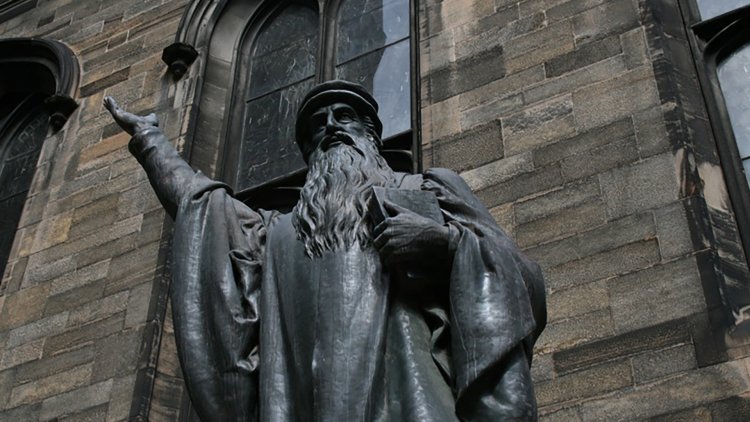As this century progresses, knowledge will be humankind's most valuable resource
The future, including economic prosperity, will belong to those countries that have harboured and nurtured this resource says, Brian McGeachan in his latest piece for Scotland Speaks.

FLESH and blood voters now fall into demographics. Cold categories reflecting, I suppose, the findings of people who place human beings on charts. One demographic, once dominant numerically, and politically, now appears to have dropped off the chart. That segment of society was once called the working-class.
Psephologists struggle with terms to describe them now that party parties eschew the conflicting needs and demands of classes. In order to neuter the organised strength of the proles, the prevailing actions of the establishment has been to resist every advance of the working class. When collective action forced concessions from a recalcitrant ruling class, there would be a two-pronged strategy: Absorb the “respectable” working-class into the system, and portray the rest as the “undeserving poor.” A trajectory from non grata to non-existent.
The residuum was a Victorian term for the feckless and feral of popular imagination. In Marxist terms, the lumpen proletariat. One pal who ascended into the middle-class likens it to Dickens being haunted by his early working life in the blacking factory. That’s one reason why the upper classes have, historically, been more responsive to the concerns of the proletariat. Secure wealth breeds security. The nouveau riche in England embraced the Thatcherite creed, and keenly felt the fear, that often accompanies it, of slipping back into the abyss.
That attitude was echoed by historian Paul Johnson who held that the proles were doomed when libraries were ripped out of miners’ welfare clubs and replaced with pool tables and ‘puggy’ machines. It is, of course, a gross distortion. And it never took hold in Scotland.
One of the reasons is because Scotland has also valued education as an ennobling experience. The development of Christianity in this country, you might call it Opportunity Knox, held that a school in every parish and a college in every town was a prerequisite for a learned and productive populace. That spirit permeates today, and is the reason why Scottish education is still highly respected throughout the world. Centuries of tradition has bequeathed us a rich resource. Education and social mobility are linked, but education in Scotland is prized as an admirable end in itself. Such material benefit as it might bestow would be shared with the wider community.
 John Knox Statue, Edinburgh. Photo courtesy of Gary Thomson
John Knox Statue, Edinburgh. Photo courtesy of Gary Thomson
The nation rose along with its people – a philosophy espoused by the punters and the poets, not the philistines. The commodification of education, alongside health, by Westminster governments offends Scottish sensibilities. The Westminster embrace of globalisation has left many of the working class beached.
David Cameron and George Osborne were lobbying for Uber when they were Prime Minister and Chancellor of the Exchequer so that Black Cab drivers who did an apprenticeship and took ‘the knowledge’ would be put out of work by an app. They were ‘history.’ Those who couldn’t adjust to the mobile creative knowledge economy and get with the programme were a tribe of unfortunates, the ‘left behind’ and the losers of globalisation.
Gordon Brown the “Iron Chancellor” allowed the spivs of the City of London to play casino capitalism with his light-touch regulation. This led the way to the banking crash. The absence of a coherent philosophical leaves a party bereft of vision, and the need to tackle social problems.
Neil Kinnock invoked historian Eric Hobsbawm as an intellectual guru. Ed Miliband became a disciple of Dr Maurice Glasman. The closest Tony Blair got to an ideological guru was the Formula One supremo Bernie Ecclestone. Mr Ecclestone secured a tobacco advertising exemption from his New Labour government, after they trousered a one million pound ‘donation’ to the party.
Harriet Harman, a Blairite acolyte, bowed to the interests of the gambling industry and relaxed regulations on their activities. The harm caused by this to the poorer sections of society continue to be felt today. Scotland’s ethos of respect for education always favoured scholars over spivs.

Ex-Labour Prime Minister, Tony Blair. Photo courtesy of Center for American Progress.
The “people’s party” accelerated the growing underclass of have-nots peripheralised in ghettos, and denied access to a decent life. These injustices are now woven into the social fabric of life. In Scotland they are seen as injustices which can’t be disentangled from the constitution of the United Kingdom which is imposing on us an alien political culture. Productivity of labour is a major factor in determining a nation's prosperity. But the productivity of labour itself is influenced by many other factors.
The quality of labour has a price apart from wages. It's created by investment in people through schools, colleges, universities and training centres, in industry and in the communities. This has to be underpinned by a culture which encourages the development of intelligence and individual talents. Social policy is therefore an integral part of the economic equation.
As this century progresses, knowledge will be humankind's most valuable resource. The future, including economic prosperity, will belong to those countries that have harboured and nurtured this resource. The price we will have to pay for the philistinism of the past could be terrible. Schools have been kicked around, sandbagged by political dogma; universities plunged into crisis by chronic under-funding and forced to discriminate against those studies considered esoteric by the narrow practicalists in charge of the Ministry. Yet in academia, as in life, those whose minds can soar to the heavens often come down to earth with the goodies.
What's Your Reaction?













































